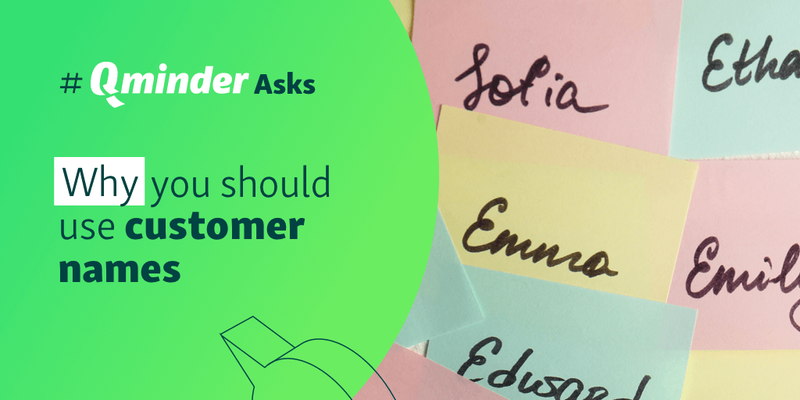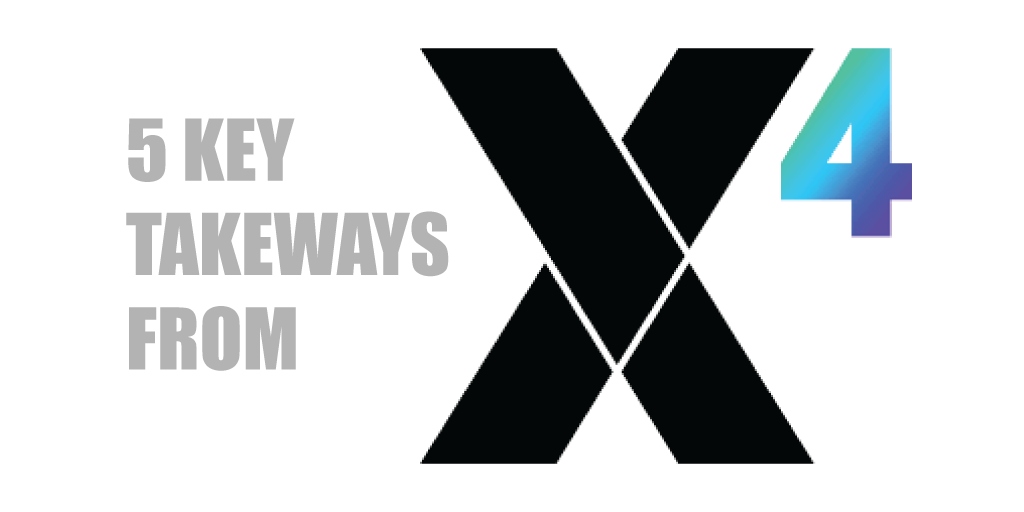Do you remember the names of your frequent customers'?
Do you use your clients’ names when interacting with them?
Did you know that referring to your clientele by their names helps build a stronger relationship with them?
If the answers to the above questions are no, then this article is for you! (And even if it’s yes, you should still keep reading as we have some interesting interviews ready for you.)
In this article, we will be discussing:
Customers’ names and personalization
Benefits of using customers’ names
Expert advice & experiences from business owners
Ready or not, here we go!
Personalization and customer names
For most companies, personalization has long since become a top priority. Industries like retail and healthcare realized how crucial it is to tailor services to customers’ preferences.
Even though there are advanced technologies that help the companies to excel at providing personalized service, sometimes simply referring to customers by their names can get you a long way.
“A person’s name is to that person, the sweetest, most important sound in any language.”
— Dale Carnegie
Connecting with a customer on a personal level is a challenging goal. When meeting a new person, we have on average only 7 seconds to make a first impression. So what are the ways that we can make a good impression on a customer in such a short time while making them engaged in a conversation and leaving them with a memorable interaction?
An effective way of doing so is using their names. We are all responsive to our names as unique brain activation is taking place in our body when we hear them.
Many businesses realized the importance of personal service and made calling customers by names one of their top priorities. This is what our respondents had to say about it:
We address everyone by their names: from customers we call for a follow-up to people who visited our office. To be honest, I think it would be strange if we didn’t!
Using names goes beyond personalizing a conversation. It's part of a greeting. You're now communicating one-on-one with this person and showing them that you are ready to listen to them and hear their story.
You'll use their name to communicate well after the conversation has finished — in follow-up emails, phone calls, and, in some cases, even connecting together through social media platforms like LinkedIn which will allow you to further strengthen your rapport together.
Deborah Sweeney, CEO of MyCorporation.com
Calling customers by name enables you to start to build a positive relationship more quickly founded on trust and mutual respect. When you forget or try to avoid using their name, the relationship becomes founded only on value exchanged and cost of the relationship, making it much shakier and less likely to last.
Stacy Caprio, Founder of Growth Marketing
Whether we receive our customers’ names through surveys or by directly checking the profiles of customers on Instagram or other social media, we make sure we address the customers by their first name to keep it sweet and intimate.
Ali Ahmed, Marketing manager at Maraley
Benefits of using customer names
A lot of companies started supporting the idea of referring to their customers by their names. However, what is the exact reason for this? What solid benefits can it bring to your business?
Using a customer's name is important because it establishes a personal relationship with them. It makes them feel important and valued.
Automation and digital technology are increasingly removing us from physical contact with other human beings, and at nature, we're social creatures – we like forming relationships with others.
This means that even something as simple as calling a customer by their first name can go a long way in establishing a personal connection with someone, building a rapport and improving loyalty.
Kraig Martin, Commercial Director at Storage Vault
Calling customers by their names removes the tag of numbers customers are referred to as by. When you are calling them by their names, you are putting a face to the faceless entity and a human touch to the transactional relationship. The connection and communication between marketers or salespeople and customers become more genuine and conversational.
The rapport built by using a customer's name is more personal and informal. The customers become more comfortable, consciously or subconsciously, stating their problems with more clarity and openness and coming forth with things they doubt about. It feels to both the parties that they are having a one-to-one interaction where one party is seeking the answer and the other party is providing it.
Siddhartha Gupta, Chief Executive Officer at Mercer-Mettl
The main benefit of personalization to our business is relationship building. Using a client's name makes the service more human in many ways.
First, it shows that you cared enough to remember their name. It also shows the client that they are more than a number or goal, you care enough to address them as a person/human being. It also allows you to make the conversation a little more relax and friendly.
Casey Grandoff, Acoustical Sales Specialist at Commercial Acoustics
Age and customer names
You have to be conscious about how your clients feel when referring to them by their name. Some say that after a certain age, it is recommended to not call your customers by the first name. Is this the case with our respondents?
Age doesn’t play that an essential role in deciding whether or not we call customers by their name. The main idea behind using names and personalized content is to get close to the customers and understand their pain points better without which your chances to sell decreases by a considerable margin.
Siddhartha Gupta, Chief Executive Officer at Mercer-Mettl
We do consider the age of a client sometimes, but I find most people nowadays are fine with being addressed by their first name, especially if you intend to develop a long-term relationship with them.
Casey Grandoff, Acoustical Sales Specialist at Commercial Acoustics
We've found that the majority of our customers, who tend to be under 60, prefer communicating in an informal way, by their first name, as opposed to the stuffy and overly formal methods of address that we'd use before we changed our process.
Kraig Martin, Commercial Director at Storage Vault
What experts say
Ask the customer whether you can call him/her by their first name. An even better strategy is to use their first name and then ask for permission.
“Hello Jane. Is it OK if I call you Jane?” Or, simply come out and ask, “Should I address you as Mrs. Smith or Jane?”
I overheard a conversation between two women. After one left, I introduced myself to the woman wearing an Air Force uniform who happened to be the Number two at the USAF Academy, the Dean of Students and obviously a general, "Hi, my name is Elliott and I overheard part of your conversation. I am a behavioral psychologist too", and we proceeded to have a 10-minute conversation. Upon parting ways, she gave me her card without my asking. I looked at it and said, "Do I call you General or Doctor?" to which she replied, "You call me Dana.”
Dr. Elliott B. Jaffa, behavioral and marketing psychologist
So why should you call your customers by their names?
Many businesses started realizing that using customers names helps you to provide a more enjoyable experience and foster a relationship that is likely to last longer.
When referring to your clients by their names you make interaction more human, more personal and more likely to last.
Make your clients feel that they are individuals and that you care about them, instead of referring to them by a queue number.
Here is where we leave you with a customer service expert quote:
“Focus on the customer, not the money”
— Shep Hyken






